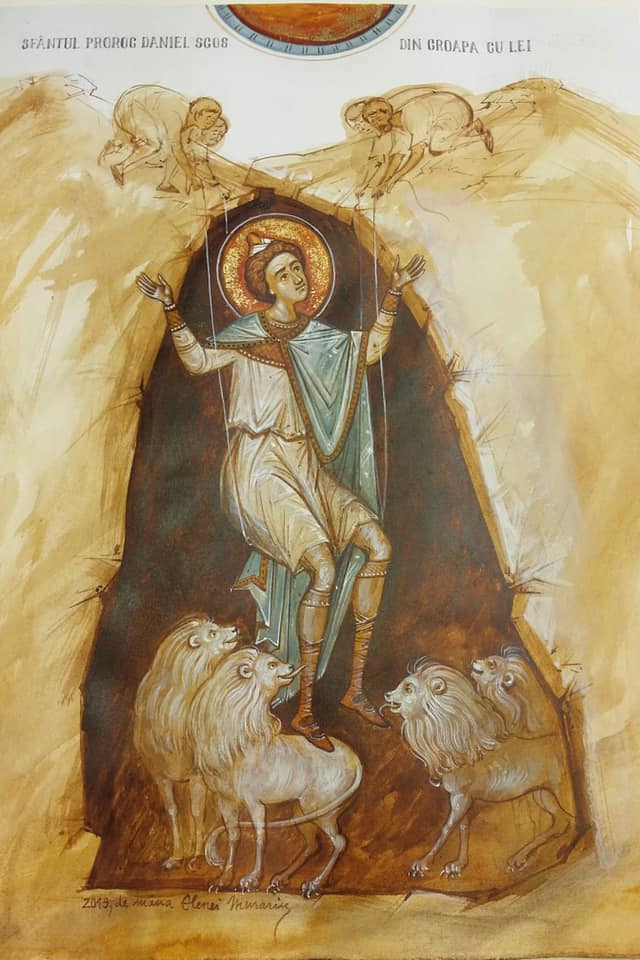 The Feast of the Prophet Daniel and the Three Holy Children [in the fiery furnace] has always been closely connected with Christmas. Proper for them are found on the two Sunday before Christmas and today we sing, “Come, O faithful, let us celebrate the forefeast of the birth of Christ; offering a spiritual canticle by way of a star. Let us join the Magi and shepherds in their hymns of praise: Behold, the Savior has come from a virgin’s womb to call back to himself the whole human race.”
The Feast of the Prophet Daniel and the Three Holy Children [in the fiery furnace] has always been closely connected with Christmas. Proper for them are found on the two Sunday before Christmas and today we sing, “Come, O faithful, let us celebrate the forefeast of the birth of Christ; offering a spiritual canticle by way of a star. Let us join the Magi and shepherds in their hymns of praise: Behold, the Savior has come from a virgin’s womb to call back to himself the whole human race.”
Perhaps this was because Daniel foresaw the incarnation of the Word. He foresaw the coming of the Son of Man as a “stone unhewn by human hands,” fulfilled in the virgin birth which as a spiritual kingdom would destroy all worldly might, “whose dominion is an everlasting dominion, and whose kingdom endures through all generations,” (Daniel 4:31) and again, I saw coming with the clouds of heaven, one like a son of man. When he reached the Ancient of Days and was presented before him, he received dominion, splendor, and kingship; all nations, peoples and tongues will serve him. His dominion is an everlasting dominion that shall not pass away, his kingship, one that shall not be destroyed” (Daniel 7:13-14).
The three children, likewise, survived the burning furnace, and there was a fourth man standing in the flames, who protected them.” The burning fire represented the womb of the virgin, not burnt by the fire of the Godhead borne by her. Our Lord came to baptize us in the Spirit and fire. Just as the fire did not harm the three youths, so that fire of baptism does not “harm” us, but purifies us and gives us life, for in it we find life in the Trinity.
Like Daniel, the “man of desires” so we long intensely for the appearance of Christ our Savior.
Meditation by Archpriest David Petras
#ByzantineCatholicNewHaven
#ByzantineCatholicCT
#ByzantineCT
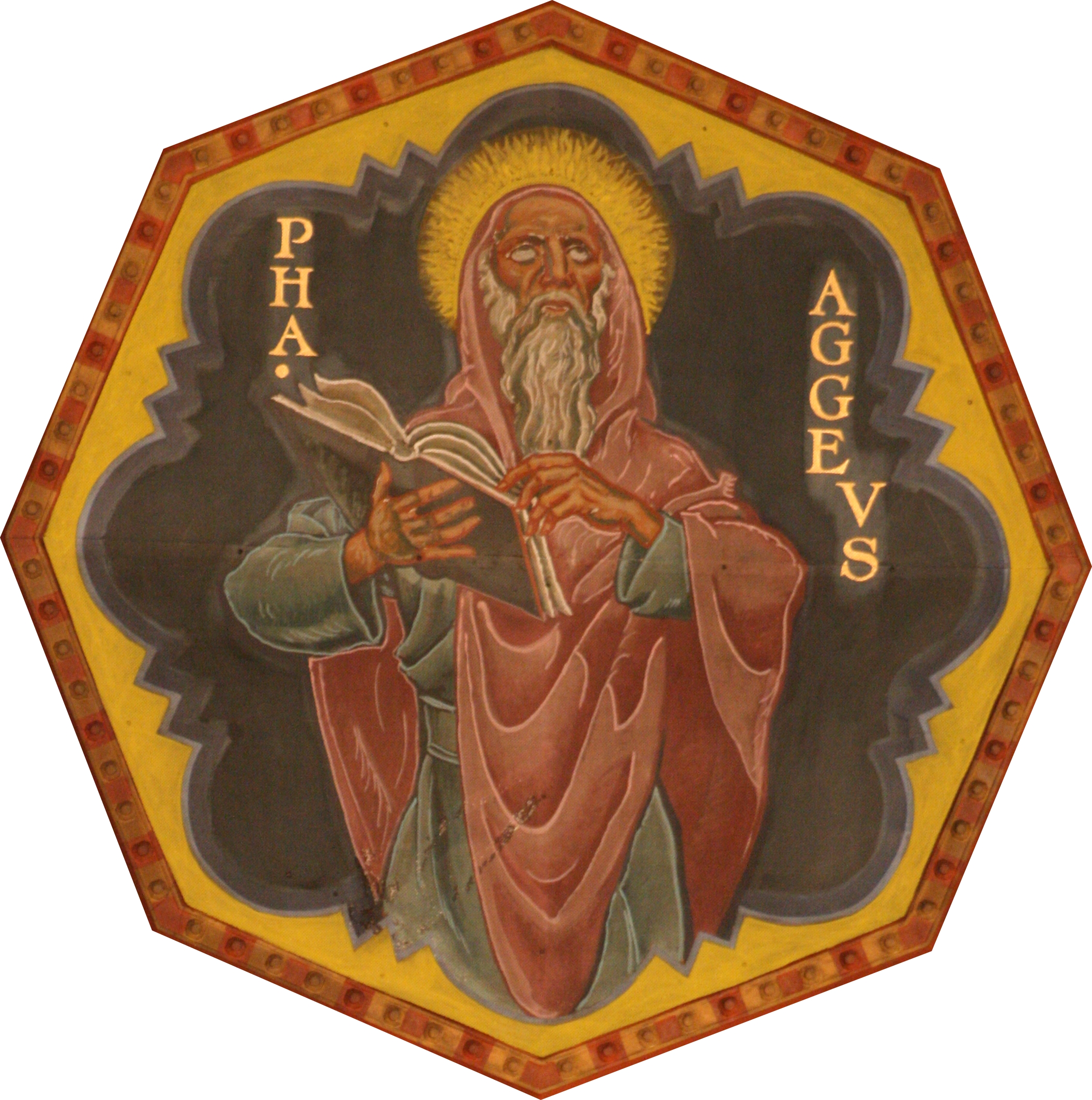 The prophet Haggai, in 520 B.C., preached that the temple must be rebuilt for the sake of the faith of the people. In this way he foreshadowed that Jesus, the Messiah to come, would be the Temple of the New Covenant in his body. His birth, then, is the completion of God’s promise to make his dwelling among his people.
The prophet Haggai, in 520 B.C., preached that the temple must be rebuilt for the sake of the faith of the people. In this way he foreshadowed that Jesus, the Messiah to come, would be the Temple of the New Covenant in his body. His birth, then, is the completion of God’s promise to make his dwelling among his people.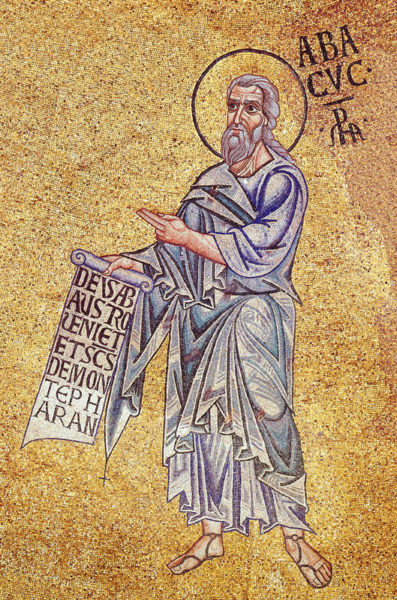 Habakkuk prophesied in Judah during the last half of the 7th century BC. He was one of the temple prophets — that is, his oracles were composed to be sung in temple worship; thus, they took the form of lamentations and canticles. Their liturgical character has persisted in out monastic office where the third chapter of his book is used as the fourth canticle of the traditional matins canon.
Habakkuk prophesied in Judah during the last half of the 7th century BC. He was one of the temple prophets — that is, his oracles were composed to be sung in temple worship; thus, they took the form of lamentations and canticles. Their liturgical character has persisted in out monastic office where the third chapter of his book is used as the fourth canticle of the traditional matins canon.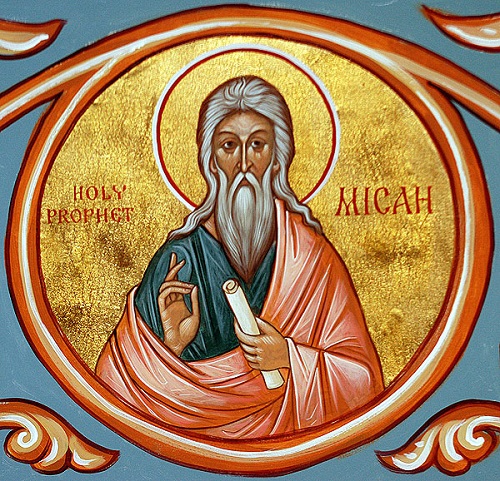 Micah prophesied between 750 and 687 bc. He was a contemporary of Amos and Isaiah.
Micah prophesied between 750 and 687 bc. He was a contemporary of Amos and Isaiah.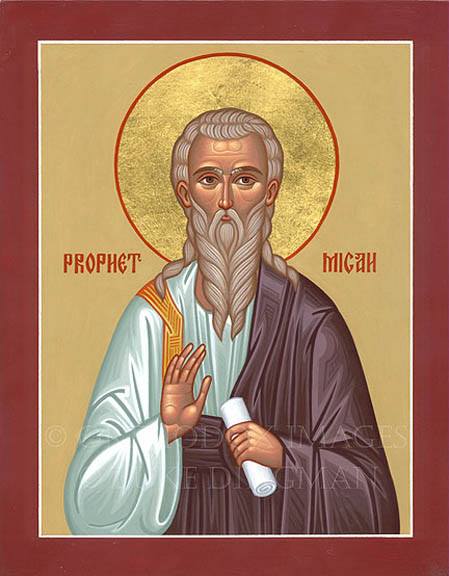 Micah is the final prophet whose memory we celebrate in the Feast of Light. However, in many of his prophecies, he speaks out of darkness. He was an ancient prophet, of whom Jeremiah says: ““Micah of Moresheth used to prophesy in the days of Hezekiah, king of Judah, and he said to all the people of Judah: Thus says the Lord of hosts: Zion shall be plowed as a field, Jerusalem, a heap of ruins, and the temple mount, a forest ridge” (Jeremiah 26:18). Micah laments, in words that could be repeated in our own times: “The faithful have vanished from the earth, no mortal is just! They all lie in wait to shed blood, each one ensnares the other” (7:2). Yet for all that, he most clearly foretells the coming of the Prince of Peace.
Micah is the final prophet whose memory we celebrate in the Feast of Light. However, in many of his prophecies, he speaks out of darkness. He was an ancient prophet, of whom Jeremiah says: ““Micah of Moresheth used to prophesy in the days of Hezekiah, king of Judah, and he said to all the people of Judah: Thus says the Lord of hosts: Zion shall be plowed as a field, Jerusalem, a heap of ruins, and the temple mount, a forest ridge” (Jeremiah 26:18). Micah laments, in words that could be repeated in our own times: “The faithful have vanished from the earth, no mortal is just! They all lie in wait to shed blood, each one ensnares the other” (7:2). Yet for all that, he most clearly foretells the coming of the Prince of Peace.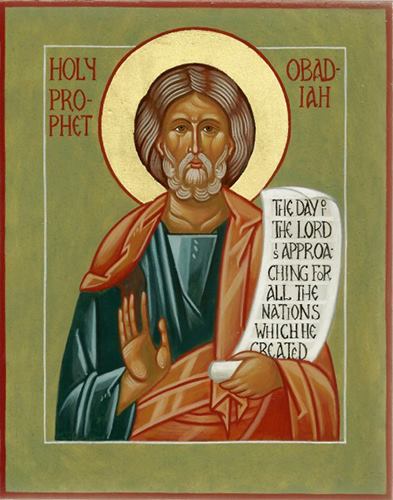 We know nothing certain about the life of the Prophet Obadiah. The Synaxarion identifies him with the servant of King Ahaz, who left to become a follower of Elijah, but that is not possible, since Obadiah’s prophecy was against Edom, pointing to a time after the exile. He is one of several prophets commemorated in the Phillip’s Fast, and verse 21 can be related to the coming of Jesus into the world: “And deliverers will ascend Mount Zion to rule Mount Esau, and the kingship shall be the Lord’s” (Obadiah 21).
We know nothing certain about the life of the Prophet Obadiah. The Synaxarion identifies him with the servant of King Ahaz, who left to become a follower of Elijah, but that is not possible, since Obadiah’s prophecy was against Edom, pointing to a time after the exile. He is one of several prophets commemorated in the Phillip’s Fast, and verse 21 can be related to the coming of Jesus into the world: “And deliverers will ascend Mount Zion to rule Mount Esau, and the kingship shall be the Lord’s” (Obadiah 21).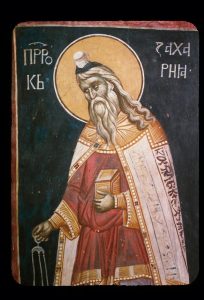 “Thus says the Lord: I have returned to Zion, and I will dwell within Jerusalem; Jerusalem will be called the faithful city, and the mountain of the Lord of hosts, the holy mountain. Thus says the Lord of hosts: Old men and old women will again sit in the streets of Jerusalem, each with staff in hand because of old age (Zechariah 8:1-2).
“Thus says the Lord: I have returned to Zion, and I will dwell within Jerusalem; Jerusalem will be called the faithful city, and the mountain of the Lord of hosts, the holy mountain. Thus says the Lord of hosts: Old men and old women will again sit in the streets of Jerusalem, each with staff in hand because of old age (Zechariah 8:1-2).